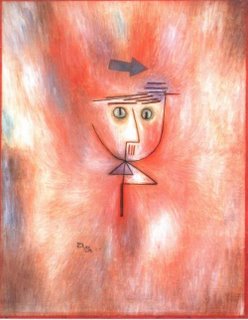Consciousness and Mortality

Some argue that computers are getting so advanced and complex that they may become conscious beings in the near future. However, what if there is more to consciousness than just the processing ability of a computer. A general definition of consciousness is the realization that one exists; “I think therefore I am.” It could be that consciousness may be related to mortality – that a being is not “conscious” until it realizes that its own existence is not permanent. Thus, a being can only realize it exists when it knows that it will someday not exist. It is only with consciousness that a being knows that each day is different from the next.
Although computers may gain the mental capability to understand mortality, they may never gain consciousness because a computer can technically live forever. Therefore, all that is required for survival is instinct. In the same sense, most animals and infants are not conscious because neither has the capability of understanding their own mortality. (It could be that some higher animals such as whales may actually realize their own existence and are therefore conscious beings).
If consciousness is linked to mortality, it could be possible for humans to lose consciousness. For example, if humans discover the secret of living forever (such as having our minds downloaded into a computer), such a realization and occurrence could be followed by the complete loss of consciousness, which would be no different than death. Thus, under the mortality/consciousness theory, it is impossible for humans to ever live forever (at least in this world).



Interesting theory. But would you then argue that a two year old, not aware of his own mortality, is not conscious?
Yes, obviously at some point a child does become aware of his or her own existence. I am not sure what age that would be.
I believe it is somewhere around one year of age that a child develops an ego. But awareness of mortality would come later, perhaps closer to age four or five. From your argument, consciousness would not exist until that later point.
A computer could be taught to be self-aware. The current day home PC already is in a rudimentary fashion. But mortality would be another matter.
Except for my computers. My computers definitely consider themselves mortal.
And actually, this is going to become a moot point as computers and humans merge. Computers have already been installed in brains to, for example, remotely control a bionic arm. And what do you think a pacemaker is?
Personally, I'm looking forward to my internet implant. I'll be infinitely intelligent.
Scribbler, an internet implant would make you both infinitely intelligent and infinitely stupid, raging and prone to violent fits of conspiracy mongering at the same time. Infinity - infinity = 0.
Take the numbers 1,2,3,...
Next, remove all the odd numbers. This leaves 2,4,6,8 ...
Still infinity.
So, Festivus, you're saying it really wouldn't change who I am.
Air Marshall, I'm not touching your implant comment!
Pencil, a most excellent point that I had not considered. I guess the main issue at that point would be determining all the odd numbers, and I suspect it would be more difficult that just removing all the web sites that Daily Kos links to, although that would be a great start.
Air Marshall, I considered your argument, which is why I noted "most animals." It could be true that some apes or whales or elephants could also be conscious.
Scribbler, perhaps consciousness is not an all or nothing realization, but rather a sliding scale. A toddler may have only an inkling that they are mortal and may be only "semi-conscious." As a child grows they will eventually learn that that death is impossible to prevent. A computer on the other hand may only learn as time goes by that death can be prevented, and thus that death is not inevitable... Therefore, only instinct is required for the computer to exist.
Post a Comment